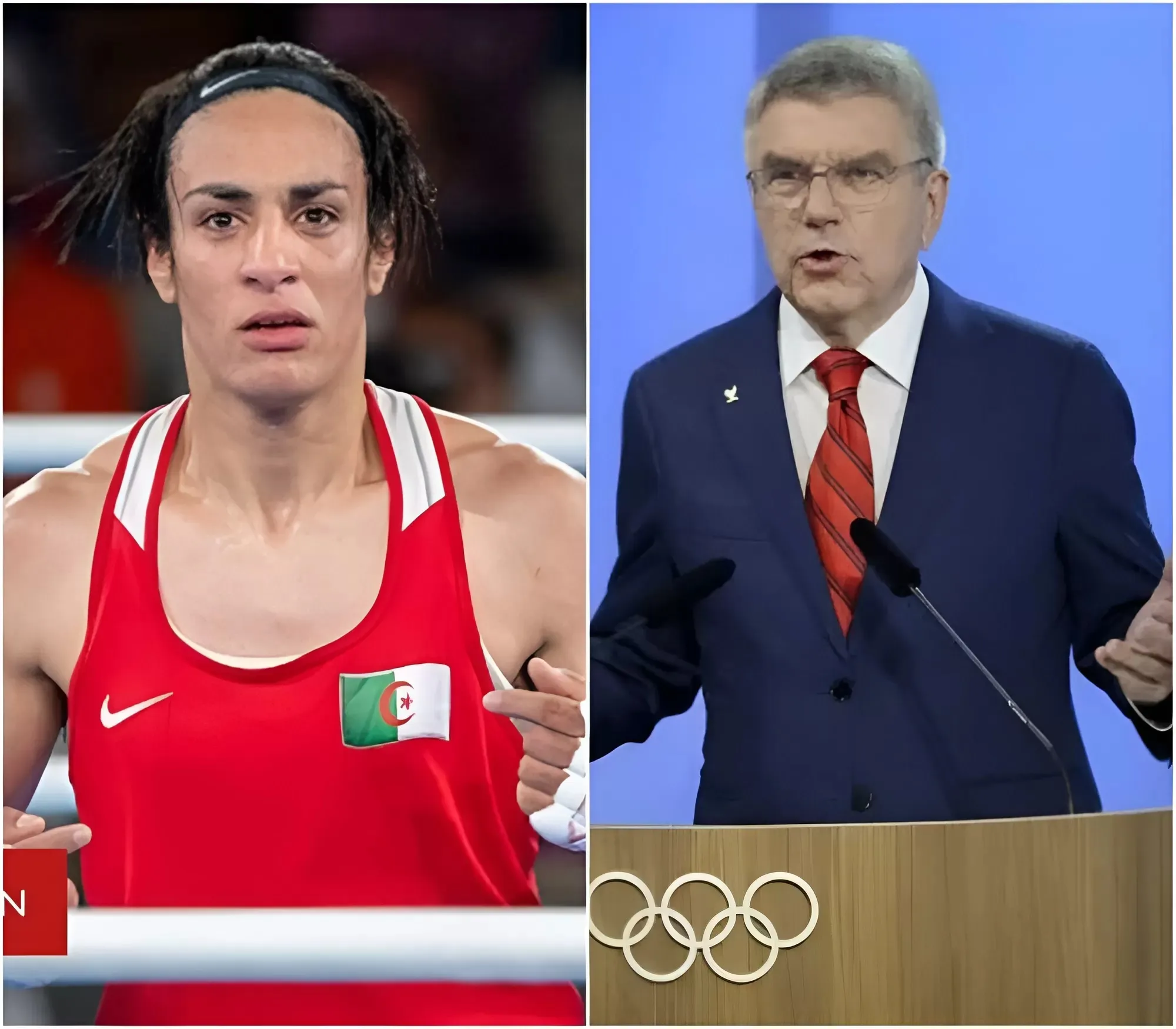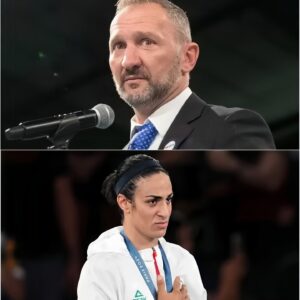In a stunning turn of events, Algerian boxer Imane Khelif, who previously made headlines for her athletic achievements, is now at the center of a major controversy surrounding her gender identity. The World Boxing Organization (WBO) and the International Olympic Committee (IOC) have confirmed that Khelif is biologically male, leading to the revocation of her gold medal and a lifetime suspension from competitive boxing. The scandal has sent shockwaves through the sports world, raising questions about gender identity in athletics and the integrity of Olympic competition.

The Rise and Fall of Imane Khelif
Imane Khelif’s journey to the top of the boxing world was nothing short of remarkable. She rose through the ranks of international boxing, showcasing her talent, determination, and skill. Khelif won numerous accolades, including a gold medal at the Olympics, and was celebrated as a trailblazer for women in sports.
However, beneath the surface of her meteoric rise, suspicions and rumors surrounding her gender began to emerge. Whispers of potential discrepancies in her identity circulated in the boxing community and on social media, but no formal investigation had been launched at the time. Khelif continued to compete, all the while maintaining that she was a female athlete.
The Investigation: WBO and IOC Confirm Gender Identity
The situation took a dramatic turn when both the WBO and the IOC launched investigations into Khelif’s gender identity after complaints and mounting evidence surfaced. Medical tests and reviews of Khelif’s biological markers ultimately confirmed that she is, in fact, male. As a result, both organizations moved swiftly to revoke her gold medal and issue a lifetime ban from professional competition.
The decision, while shocking to many, has ignited a fierce debate about fairness in women’s sports. While Khelif’s supporters have argued that she should be allowed to compete based on her gender identity, critics insist that her biological advantages gave her an unfair edge over her female competitors.
A Blow to the Integrity of Women’s Sports
Khelif’s case has highlighted the ongoing challenges and debates around gender identity in sports, particularly regarding the participation of transgender and intersex athletes. Critics argue that allowing athletes with male biology to compete in female categories undermines the fairness of competition, as biological men typically possess physiological advantages such as greater muscle mass, strength, and endurance.
For Khelif’s competitors, the revelations have been devastating. Many feel that they were competing on an uneven playing field, and that Khelif’s victories came at the expense of athletes who did not have the same biological advantages. As one former opponent stated, “It’s heartbreaking to know that we trained so hard for a fair fight, only to discover that it wasn’t fair at all.”
Public Reaction: Divisive Opinions
The public response to Khelif’s suspension has been deeply divided. Some support the WBO and IOC’s decision, arguing that the integrity of women’s sports must be protected. They believe that athletes should compete in categories that reflect their biological sex to ensure fairness and equality in competition.
On the other hand, supporters of Khelif argue that the decision represents a violation of her rights. Many point to the complex nature of gender identity and call for more inclusive policies that allow transgender athletes to compete based on their gender identity rather than their biology. Activists have criticized the decision as discriminatory, and the case has sparked renewed calls for clearer regulations on gender inclusivity in sports.
The Future of Gender in Sports
The controversy surrounding Imane Khelif is likely to have long-lasting implications for the future of gender inclusivity in sports. As more transgender and intersex athletes seek to compete in categories that align with their gender identity, sports organizations like the IOC and WBO will be forced to confront the delicate balance between inclusivity and fairness.
Many athletes, coaches, and policymakers are calling for clearer guidelines and more consistent testing protocols to ensure that all athletes, regardless of gender identity, can compete on a level playing field. The case has also highlighted the importance of transparency and open dialogue in addressing these complex issues, as the world of sports continues to evolve.
Conclusion: A Legacy Tarnished
Imane Khelif’s fall from grace is a cautionary tale about the complexities of gender identity in competitive sports. Once hailed as a champion, her legacy has now been marred by accusations of deception and unfair advantage. While the WBO and IOC’s decision may have brought some resolution to the situation, the broader debate surrounding gender identity in sports is far from over.
As the world watches this controversy unfold, it is clear that the conversation about gender, fairness, and competition in athletics is just beginning. The future of women’s sports may very well depend on how organizations, athletes, and the public navigate these complex issues in the years to come.





